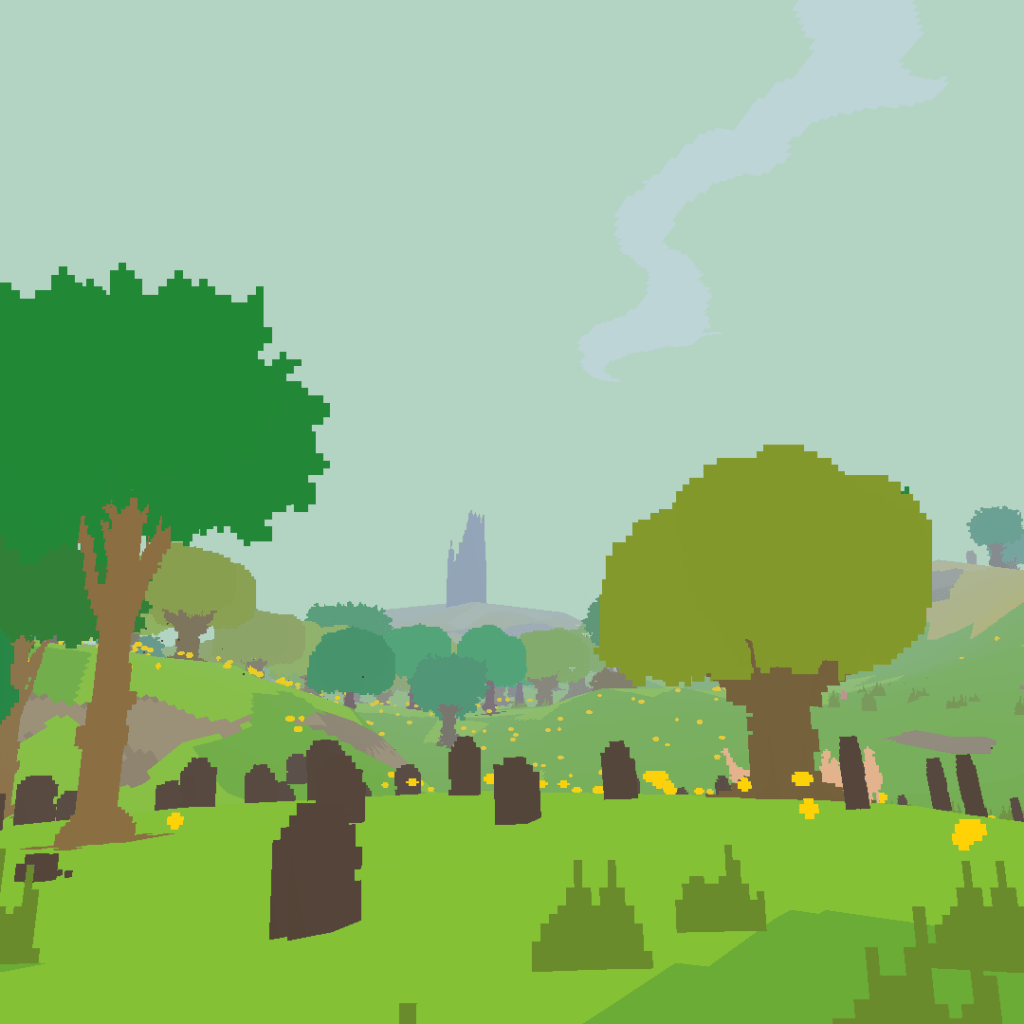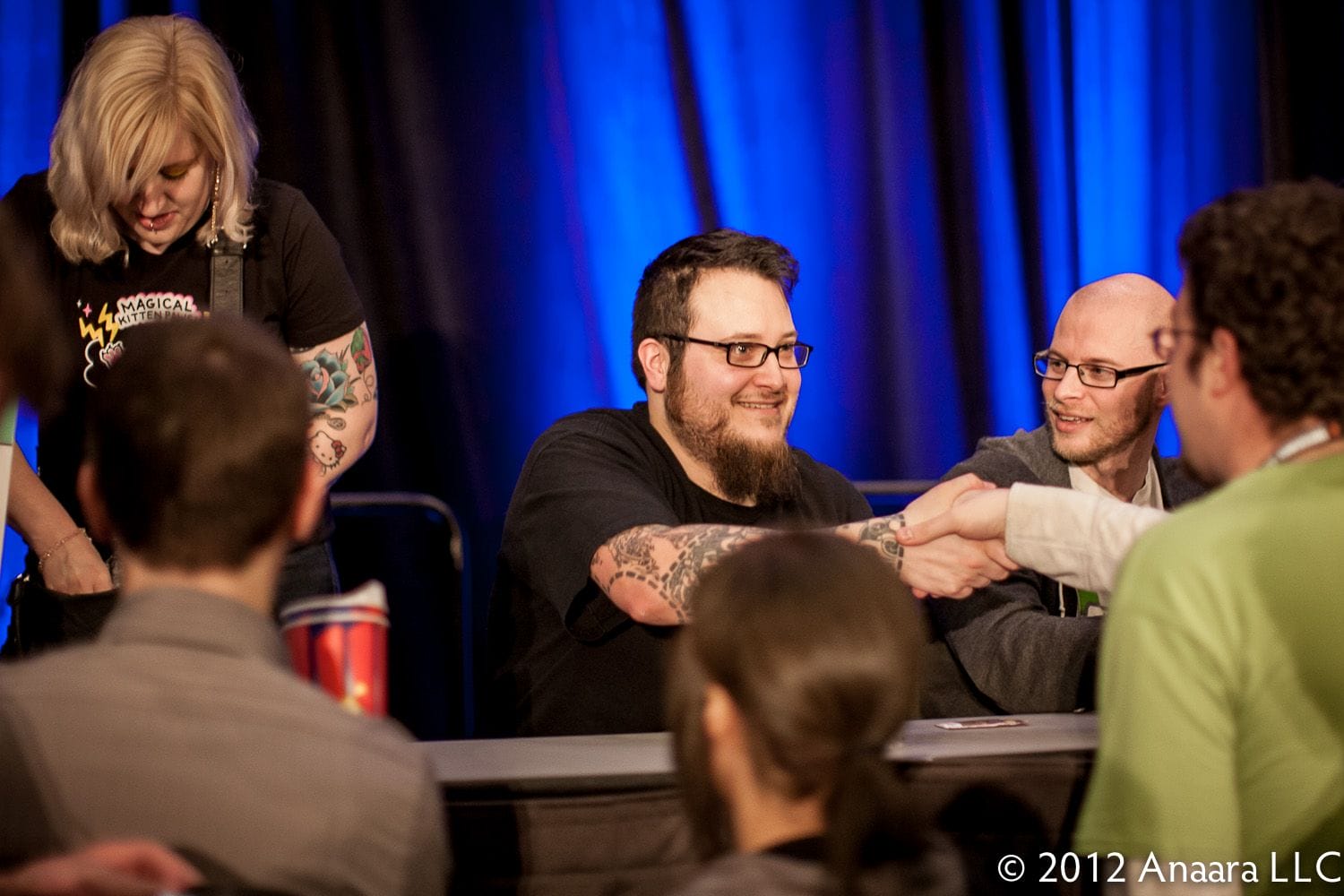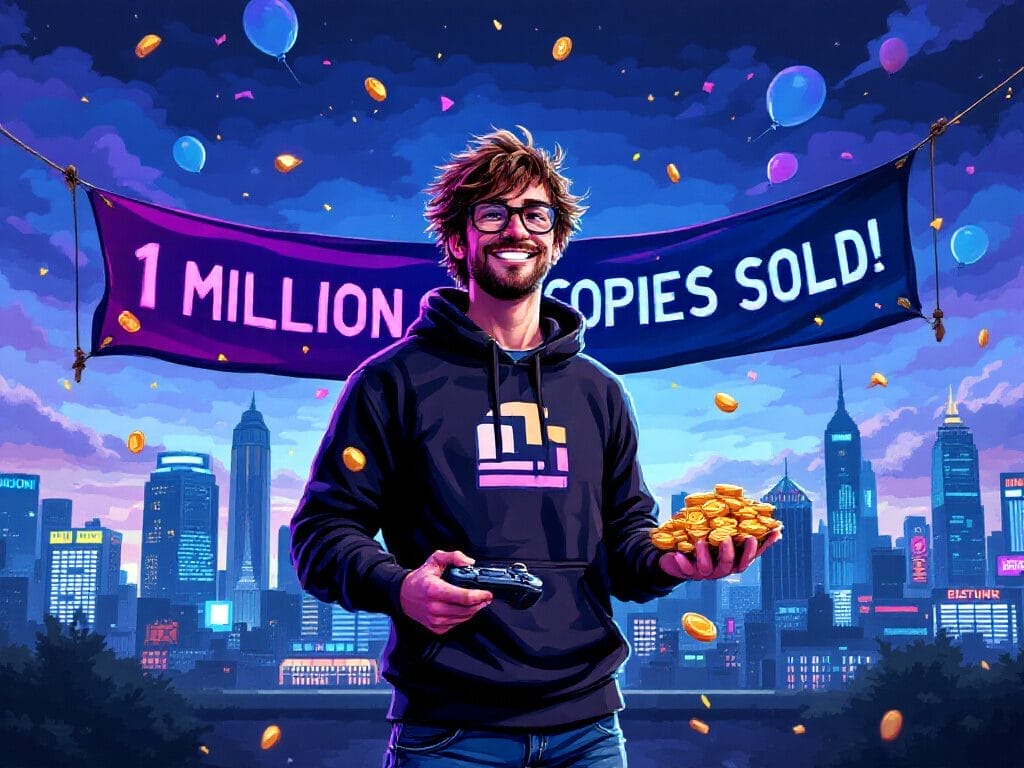Indie game development is the process of creating video games by individuals or small teams without the assistance of a major publisher. If you want to Tips TO get started in indie game development, you should have a solid foundation and be prepared for the specific challenges of this type of employment.
In this post, we’ll discuss how to get started in independent game creation, including setting reasonable goals, forming a good team, learning from others, staying current, and experimenting with new concepts. With these pointers in mind, you’ll be well on your way to launching a successful indie game production career.

Tips TO get started in indie game development Table of Contents
Tips to get started in indie game development
I. Introduction TO get started as an indie gamedev
Indie game development is the process of creating video games by individuals or small teams without the assistance of a major publisher. This kind of game creation gives developers complete creative control over their products and the ability to realize their distinctive vision. Indie game developers are noted for their unique approaches to game design and storytelling, and they frequently work solo or in small, close-knit teams.
A solid foundation is essential for anyone interested in pursuing a career in indie game development. It involves having a solid understanding of the game production process, becoming acquainted with industry tools and techniques, and developing a strong network of fellow developers and industry professionals. It’s also crucial to understand your skills and shortcomings as a developer and to be eager to learn and evolve as your career progresses. By creating a solid foundation from the start, you’ll be better prepared to face the obstacles of indie game development and turn your creative ideas into successful games.
One of the primary advantages of indie game production is the opportunity to experiment and innovate. Indie developers are frequently at the vanguard of new industry ideas and techniques, and they can pursue projects that might not suit larger companies. This freedom, however, comes with its own set of constraints, such as the requirement to self-fund and self-promote your ideas.
Indie game production can be a profitable and exciting career option, but it takes a significant amount of hard work and devotion. It’s critical to be prepared for long days, tight deadlines, and the inevitable failures that come with any creative endeavour. It is also essential to grasp the business side of game creation, including how to sell and monetize your games.
Although the indie game production community has developed tremendously in recent years, it can still be a difficult field to enter. It is critical to distinguish yourself from the crowd and to have a clear vision for your games. It requires a good portfolio of work to exhibit and a firm understanding of your target demographic and what distinguishes your games.
Numerous tools are available to assist independent game developers in getting started and succeeding in the industry. It includes online tutorials, forums, and development communities that can provide advice and support. Attending industry events and conferences can help you learn from more experienced developers and build crucial connections. Utilizing these resources and remaining current with industry trends may give you the best chance of success in indie game development.

II. Start small
One of the most important pieces of advice for getting started in indie game creation is to start small. Setting realistic goals and being aware of your time and resource constraints are critical. Taking on too much too soon might lead to burnout and, as a result, a lesser-quality product.
Starting with a small, manageable project will help you develop the skills and confidence you’ll need to handle larger, more complex ones later. It’s also an excellent opportunity to put fresh ideas to the test and learn about the game development process.
When creating project goals and timelines, it is critical to be realistic while allowing flexibility. It is preferable to underpromise and overdeliver than to establish unrealistic expectations and risk falling short of them. It’s also a good idea to divide your project into smaller, doable tasks and create a clear plan for completing each, as it will help you keep focused and on track and make tracking your progress easier.
It’s also beneficial to develop open lines of communication with your team members and ensure everyone is on the same page regarding goals and deadlines. Regular check-ins can ensure that everyone is on track and that potential problems are handled as soon as possible. You’ll be well on your way to a successful indie game development career if you start small and set attainable goals and deadlines.

III. Build a strong team
Working as part of a team may be useful in indie game development because it allows you to tap into a wide range of skills and expertise. A strong team can also assist in dividing the burden and providing support and encouragement throughout the development process.
Working with a team in indie game development has various advantages:
- Greater efficiency: By delegating duties to team members, you can work more efficiently and complete more things in less time. This is especially true in the fast-paced field of game development, where deadlines can be quite tight.
- Broad skill sets: A team with diverse talents can provide a new perspective to your project and help you solve issues in novel ways.
- Working with a team can create a sense of camaraderie and can assist in keeping morale high during the sometimes stressful development process.
Here are some ideas for locating and hiring team members if you’re trying to construct a great team for your independent game development project:
- Look for people who share your enthusiasm and vision: Collaborating with people who are just as invested in your project as you are is critical. Look for team members who are enthusiastic about game development and are willing to put in the effort necessary to bring your game to reality.
- Look for team members with complementary skills: Look for team members with skills and expertise that complement your own. If you’re good at programming, look for an artist or designer to join your team.
- Attend business events, join online communities, and seek out others who share your interests to network and reach out to others in the industry. You never know who you’ll meet or what possibilities will present themselves.
- Be open to fresh ideas: Be bold and consider team members with diverse backgrounds and experiences. A varied staff can help you think outside the box and bring a new perspective to your project.
You’ll be better prepared to face the obstacles of indie game development and bring your vision to reality if you form a solid team.
IV. Learn from others
Never stop learning is one of the keys to success in indie game development. There is always more to learn and new approaches to uncover, and seeking help and direction from more experienced developers is one of the greatest ways to do so. Networking and establishing contacts with individuals in the field can be a significant resource for acquiring new skills, maintaining current industry trends, and identifying collaboration opportunities.
Here are some pointers for locating and joining independent game developer communities:
Attend industry events and conferences: Attending industry events and conferences is a wonderful way to meet other developers and learn about new tools and approaches. Many gatherings also provide networking opportunities and the opportunity to hear from more experienced developers.
Participate in online communities: There are numerous online communities for indie game makers, including forums, Discord groups, and social media groups. These groups can be fantastic places to get guidance and assistance and keep up with industry news and trends.
Participate in game jams: Game jams are gatherings of developers that work together to produce a game in a short period of time, usually over a weekend. These events provide an excellent opportunity to network with other developers, acquire new skills, and receive feedback on your work.
Seek mentors: Consider contacting more experienced developers you admire and asking them if they would be willing to mentor you. Many developers are eager to share their knowledge and experience with others, and they can offer useful advice and help.
You’ll be able to grow and progress as a developer and lay a solid basis for your career in indie game development if you learn from others and seek out possibilities for collaboration.
V. Stay up-to-date
The game development industry is always changing, with new tools, techniques, and trends developing regularly. It is critical to stay current with industry advances to remain competitive and keep your skills polished.
Here are some pointers for staying up to date on new game development tools, methodologies, and trends:
Keep an eye on industry blogs and news sources to stay up to date on the newest advancements in the game development sector.
Attend industry events and conferences: Attending industry events and conferences is a fantastic opportunity to learn about new tools and approaches and hear from industry leaders. Many events also provide workshops and training sessions where you can pick up new skills.
Take online classes: Online courses and tutorials can be an excellent method to learn new skills and keep up with industry trends. Many courses are taught by experienced developers and provide hands-on instruction and assistance.
Participate in online communities: Online communities, like forums and social media groups, may be an excellent source of information about new tools and approaches, as well as comments on your work.
Maintain an open mind: Be willing to try and learn new things. Feel free to try new things and step outside of your comfort zone.
You’ll be well-equipped to succeed in the ever-changing world of game development if you stay up-to-date and continue to study and improve.
VI. Don’t be afraid to experiment
Being open to new ideas and embracing the unknown is one of the keys to success in indie game development. Experimentation and risk-taking can lead to new ideas and breakthroughs to help your games stand out.
Here are some advantages to experimenting and taking chances in game development:
By experimenting and taking chances, you open yourself up to new ideas and can push the boundaries of what is possible in game creation. It can result in more inventive and one-of-a-kind games that stand out from the crowd.
Personal development: Experimenting and taking risks can help you grow and progress as a developer. Stepping outside your comfort zone and taking on new challenges can allow you to learn and grow in ways you never thought possible.
Game creation should be enjoyable! By trying new things and taking chances, you may keep the process interesting and motivate yourself to work on your projects.
Here are some pointers for getting ideas and testing new ways of game development:
Look beyond the gaming industry for inspiration: it can come from anywhere. Look to other creative fields for ideas and inspiration, such as painting, music, and literature.
Collaboration with others helps you bring new ideas and views to your project: Consider collaborating with developers who have different talents and knowledge than you.
Take pauses: Taking breaks might help you clear your mind and return to work with a fresh perspective. The best ideas sometimes strike when you least expect them.
Experiment: Feel free to try new things and experiment. It can entail experimenting with new tools and approaches and having an alternative approach to game design.
If you embrace experimentation and risk-taking, you’ll be well-equipped to contribute new and inventive ideas to indie game development.
Youtube References on Starting as an indiedev
Here are some YouTube videos that cover the topic of “Tips for getting started in indie game development”:
“Indie Game Development Tips” by Ask Game DeV
“A Survival Guide for Game Developers” by GDg
“Intro How To Start A Game Studio (LEGALLY)” by Thomas Brush
I hope these videos are helpful in your journey as an indie game developer!
VII. Conclusion
Starting indie game creation can be an interesting and rewarding path. If you follow the advice in this article, you’ll be well on your way to laying a solid foundation for your career in the sector.
Some important things to keep in mind as you begin your indie game production journey are:
Begin small and set attainable goals and deadlines.
Create a strong team with a variety of talents and knowledge.
Learn from others and look for ways to collaborate.
Keep current with industry trends and tools.
Feel free to try new things and take risks.
We encourage budding indie game creators to follow their ambitions and pursue their love for game development. While it can be a difficult field, it can also be quite rewarding. You may convert your creative ideas into popular games with hard work, dedication, and a willingness to learn and grow. Good Luck!
We hope you’ve found these tips for getting started in indie game development to be helpful and informative. If you have any additional questions or would like to share your own experiences, we’d love to hear from you in the comments.
If you’re interested in learning more about indie game development, be sure to check out our blog for more articles on the topic. We cover a wide range of subjects related to game development, from the creative process to the business side of the industry. We hope to see you there!




